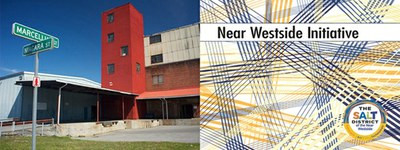Context
The nation’s industrial capitals have experienced steep decline over the past 60 years. From St. Louis to Chicago to Buffalo, Rust Belt regions have seen thousands of jobs disappear and large populations abandon once booming cities. Over the past few decades many place-based institutions anchored in these communities, especially colleges and universities, have become important engines of community renewal through a broad range of engaged activities aimed at advancing the goals of full participation.

In Syracuse, New York, the University has embraced its role as a critical anchor institution in rebuilding its multiple communities—local, regional and global—and embarked on a series of long-term projects connecting knowledge and action and grounded in the affirmative vision of full participation, which we have collaboratively defined to mean creating institutions that enable all people to thrive, realize their capabilities, engage meaningfully in institutional life, and contribute to the flourishing of others. At the heart of this mission lies culture change strategies and shared goals organized around the University’s vision, “Scholarship in Action.” The Center works with Syracuse University to bring together diverse knowledge, stakeholders, resources and capabilities needed to sustain this work and to rebuild constituent communities.
Project Description
Syracuse University (SU) and the Center for Institutional and Social Change have developed a long-term research collaboration to understand and facilitate the relationship between (1) engaged scholarship that addresses pressing public concerns, (2) the building of a diverse university that enables people from traditionally marginalized communities to participate and thrive, and (3) the cultivation of transformative leadership for social justice as part of an overall strategy of reducing inequality and advancing full participation, or what we term “institutional citizenship.” Through strategic inquiry and larger reflective sessions, this collaboration is designed to connect research, teaching and engagement projects together, to support the ongoing work of change agents at Syracuse University, to offer frameworks and cross-cutting strategies for advancing full participation, to develop an understanding of indicators that both drive and track collective impact, and to build the capacity of transformative leaders with similar goals elsewhere. As a way to advance and focus this work, the Center has begun to map constellations of transformative leadership working together to address public problems through the University’s Scholarship in Action (SIA) initiatives. How do SIA initiatives advance the full participation of faculty, staff, students, and community members, while also advancing research, teaching, and engagement that addresses significant issues affecting different communities? How does the building of institutional citizenship get incorporated into institutional policies and practices?
One major component of this work examines how research, teaching, and engagement projects in the context of SU’s School of Education connect to each other, to Syracuse University’s vision of Scholarship in Action, and to a larger set of problems in the world. This project seeks to understand how the School of Education’s sustained engagement with projects aimed at transforming K-12 education in Syracuse can deepen the impact and sustainability of such projects and move the culture of the School of Education to support increased inclusion and public problem solving.
The Center’s partnership with the Syracuse University team at Nottingham Early College High School (NECHS) involves deep and robust collaborative work including strategic visioning, reflective practice and assessment, as well as identification and documentation of best practices and the NECHS program model. Our collective efforts enable the academic success of NECHS students and advance the broader goals of the program.
The Center’s collaborations at Syracuse University are designed both to support faculty, students and partners in their ongoing efforts to realize the vision of SIA, and to offer frameworks and strategies for building the capacity and sustainability of University-community partnerships with similar goals elsewhere.
Project Collaborators
The Center for Institutional and Social Change collaborates with partners from Syracuse University and SU’s School of Education. Our co-principal investigator is Nancy Cantor, Chancellor and President of Syracuse University and we work closely with Douglas Biklen, Dean of the School of Education and Professor of Cultural Foundations and Teaching and Leadership at the School of Education at Syracuse University. We work directly with professors Kelly Chandler-Olcott andJeff Mangram as well as multiple Nottingham Early College High School program coordinators, staff, and team members. As part of this project, we also collaborate with the larger SU campus faculty and administration, the Syracuse City School District, teachers at Nottingham High School, and parents of students in the NECHS program.
